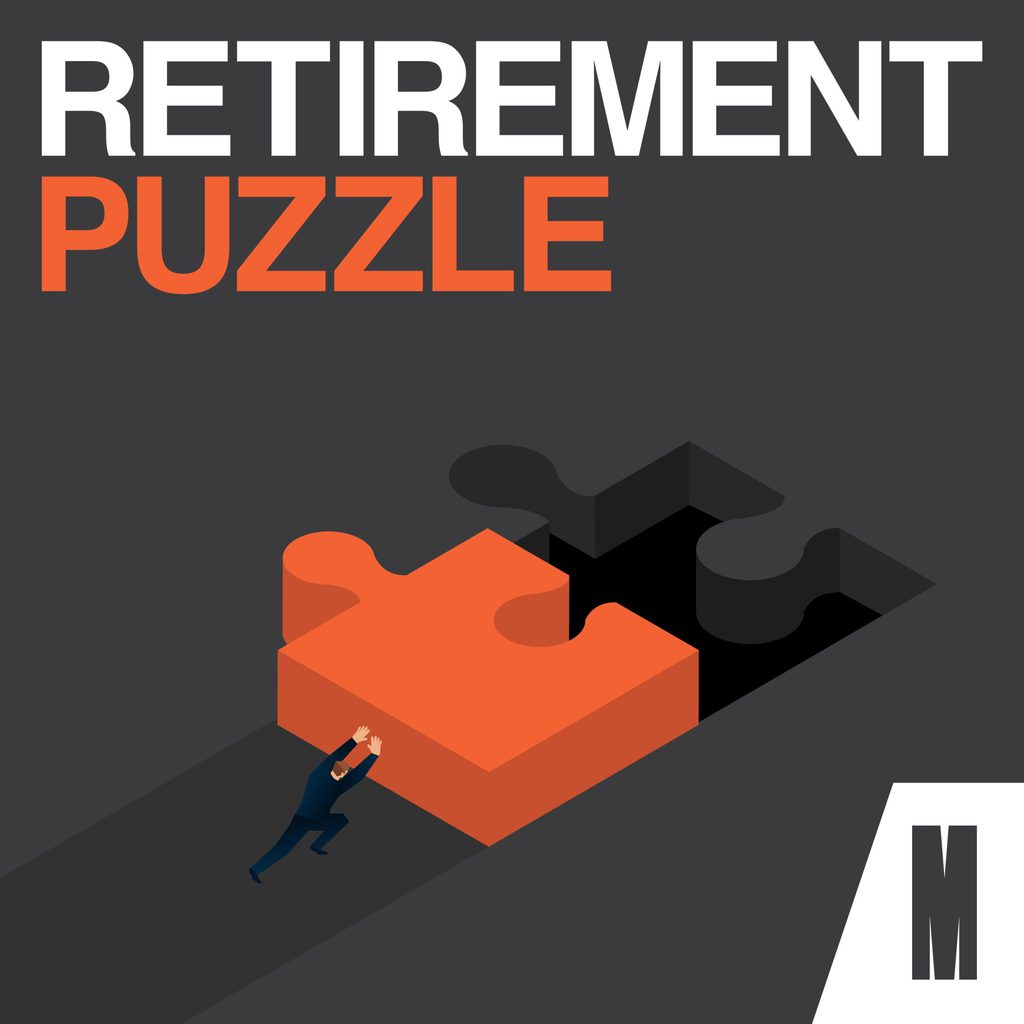Today, we will talk about The 100-Year Life. My inspiration for this podcast comes from the book a 100-Year Life by two professors at the London Business School, Professors Andrew Scott and Lynda Gratton.
I am very pleased to introduce Professor Scott, our speaker today. Andrew Scott is professor of economics at London Business School and a consulting scholar at Stanford University’s Center for Longevity and the co-author of The 100-Year Life and The New Long Life. He is a reputed scholar with multi award winning research writing and teaching.
Nga Pham:
He’s also a board member and advisor to a range of corporates and governments. Andrew is known globally for his groundbreaking work on longevity and economics. His book with Lynda Gratton, The 100-Year Life, has been published in 15 languages. It is an Amazon bestseller and it has won a number of prestigious book awards. Andrew, thank you so much for being here with us today.
Andrew Scott:
My pleasure, looking forward to our conversation.
Nga Pham:
A 100-Year Life is a very impressive title for the book, Andrew. And I wonder why you say that our life is now 100 years.
Andrew Scott:
So, the starting point for the book was just recognizing that people are behaving differently at different ages, but if you look at life expectancy statistics, they show that every generation has been living longer than the previous one. And the result is that senior, certainly in the UK, and I imagine it’s very similar in Australia. According to the government statistics, the majority of children born today will live into their 10th decade, [reach the 00:04:40] 90s. And wanting to live to be a hundred. So, it’s plausible now to have to plan for a very long time. What that means, is in every age, you have more time [inaudible 00:04:53]. So, you have to plan different.
Andrew Scott:
And it is ultimately about time. I think there’s a lot of discussion about an aging society being more old people. I prefer to look at it as longevity for a long future. And once you think of the things from a longevity point of view, you realize this is not something that you deal with when you get old, it’s something that affects all. So, that was really the beginnings of The 100-Year Life book. And the title, I do think it’s a great title I have to say that because it just gets people thinking and not always positively, sometimes somewhat daunted and nervously, but how can you prepare for your future self?
Nga Pham:
I do agree that a long life is a gift that the current and future generations can enjoy. However, it does come with challenges that few of us prepared for. As you wrote in the book, we all have to actively think about the future and begin to sketch a pathway that works for us in such a longer life. So, how does the sketch look like for a person starting their career now [versus 00:06:07] that for somebody preparing to go into their retirement, Andrew?
Andrew Scott:
That’s a great question. And of course, my starting one obviously, is the time is a search of [convention 00:06:17]. We structure time to make it work for us. But also the 20th century, as more and more people live to sort of [inaudible 00:06:28], you saw the creation of retirement and being a pensioner. You also saw the other end of life, the creation of teenagers. So, we created a three-stage life education work retirement. And really the challenge that we’ve got now, is that if we are living in hundred year lives, ninety year lives, we can’t really stretch out that three stage life to cope. And we’re seeing that in lots of different ways, but of course the people who have the most time all is the younger generation, ultimately things are very different.
Andrew Scott:
You start work at 20, retire at 80, it’s a 60 year career, which is pretty daunting. So, we talk about a multi-stage life, which you’re going to have several changes. Some of those changes will be choices, some of them will be forced upon you. Clearly, younger people have got to having a longer life without the security blanket of three-stage life and the retirement systems place and I think if you think about a younger person facing that 60 year career and getting to ninety or a hundred, they really are, could face a lot more individual [inaudible 00:07:37]. If they’ve got these multi-stages, then they’re going to have to be much more responsible, following a career path, reinvesting in skills, they need to think about their own finances.
Andrew Scott:
So, it’s a very, very different world, I think, for a younger generation. So, you talk for instance about people currently about to retire and I think what’s interesting about, sort of phrase retirement is, is really shifting and [hasn’t been 00:08:02] already. So, the notion of retirement is an age where everyone, same age, comes to a hard stop work and then they stop. It is already gone. You can see more and more people, for instance, working and all the high-income countries, people working are 65 has been rising in the US. It’s doubled the last 10 years or double the next 10 years. The same as across the world. And to the extent to which people will say, “Well, what are you going to do after retirement?” And often it’s carrying on work.
Andrew Scott:
It may be full time, it may be part time, it may be good economy, but even older people come in after a time and they’re going to behave differently from the past because they have a lot more time in that retirement. And obviously that’s leading to the intergenerational challenges. For me, the answer probably is our existing three-stage life, cannot stretch down to ninety or a hundred years. Anything you’ve been really early on in your education, that could stand that much test of time, will need to get re-educated, significant re-skill, upskilled at different points in your career. So, we need to refresh a new career path and obviously this is talking about retirement podcast, but you don’t have to realize that time and being a pensioner, is defined by the three-stage life. And if we’re moving away from the three-stage life, then the whole concept of time changes.
Nga Pham:
Yes. I agree with you that the longer life expectancy comes with more challenges in working and planning for a longer and healthier life. Young people having a 60 year career now face more employment risk and they need to re-skill and upskill themself and for older people, many have to work longer. Apart from the challenges to our working life, what are the challenges of a multi-staged life, in terms of work-life balance and in terms of investing for retirement?
Andrew Scott:
We talked about work and how you’re going to see lots of different shifts and career changes. There’s an obvious focus on skills and still changing there. But I think also part of that is about your identity, you’re going to go through more changes in identity. And so, there’s a lot to manage other than just skills and finances. There’s, what we call, your tangible assets and I think identity and tying it, not tying it specifically to job is a big, around leisure, I think this is a huge one because ultimately if you think about what’s happened with three-stage life, because retirement age is only just started to rise, most of the gains in life expectancy has led to a longer retirement. Otherwise, led to more measure after.
Andrew Scott:
And I think what we’re seeing now is as state pension age increases, as more people work after this pension, what we’re going to see is more leisure happening before it. So, as we’re lengthening our careers, you’re going to spend, get more leisure before it, rather than after a time. You might use that time to recharge your skills, your fitness, your relationships, your sense of [inaudible 00:11:32]. And I think that then raises a shift in what we mean by leisure. Flashes longer, got to be kinder to your future self, which means some of your leisure is invest in your future self, going to the gym, relationships, people you haven’t seen for a long while, could be learning how to code in Python or whatever skills you need.
Andrew Scott:
And a three-stage life work is what you do when you turn old and you get paid, but if you are owning your career and have many different stages, then you’ll be using your leisure time to prepare for the next stage. And then investment of course has to change. If you’ve got more future, you will have to save more or at least add more funds under management. But I think it’s much more than that because as I’ve suggested, you’ve got to invest in a lot of the things other than just your finances. Your health particular, but also relationships and skills, but also just the pattern of investment will need to change and in particular, I think you’ve got a major issue around longevity risks.
Andrew Scott:
The 20th century saw a big growth in the life insurance industry because the midlife years were very high mortality and you wanted to make sure that if you died prematurely, your family will be taken care of. So, sort of massive growth in life insurance. But as we’re living longer, there’s a new risk around, which is you will outlive your finances, you’ll outlive your skills, outlive your relationships, outlive your health. So, dealing with that longevity risk I think is going to be one of the key things.
Nga Pham:
I really like your broad definition of longevity risk, in that this is not just about outliving our finance, but also outliving our skills, relationships and health. It is an interesting observation that the pension and insurance sector now should not just focus on the risk of dying young, but also the risk of people outliving their wealth and their health.
Andrew Scott:
Exactly. And I think this is, we talked about individual taking on more and more risks, which I think is a challenge besides needs to find ways dealing with it, but this longer life does create this really big risk. And we already talked about the title a 100-Year Life, gift or a curse, and how people are either excited or somewhat daunted and fearful of it. And that’s ultimately the longevity risk because people want a long life to be a good life. And that’s this new importance of aging well and of course, aging well has many different connotations. Part of it is about health. It’s also just about being happy and purposeful.
Nga Pham:
You mentioned that investment behavior and pattern should also change. Could you please elaborate on that? Do you mean finish investment?
Andrew Scott:
Yeah. I mean, clearly as I say, if we’re living longer, we need to find out some [inaudible 00:14:47] and assuming people are prepared to accept a lower level of consumption, but of course it does make then a major difference with your investment. You’re first of all, you’re working for longer, you’re longer there. So, I guess that means you take on more risks. So, you’ll find older investors should be still prepared to take risks or the risk. Secondly, I think you’re going to find over these longer lives, just a great deal more diversity. In a three-stage life when everyone’s retiring at the same age, financial assets is relatively straight, but in a multi-stage life, you can do that so many different ways. You can start putting your money early or you can start putting your money late.
Andrew Scott:
You could be retiring at eighty or you could be retiring at sixty. So, you see just a great deal more diversity in how people are structuring them, their finances. And then of course, as overlaid on just the fact that people do age very diversely. And then you’re obviously going to have more savings for before a time. If you’re going to go through periods of transition and change what your income may be zero or reduced to transit jobs. But then as I say, it’s around longevity risk and a better form of investment in your fifties may well be to invest skills you carry on working. And it is to put money in the market. And thinking of that broader portfolio.
Nga Pham:
Yes, I agree with that. And adding to the challenges of a longer life is the uncertainty about how future pension system will look like. State pensions under pay as you go model or an unfunded system become unsustainable when people live longer and the birth rate is lower and pay as you go systems that pensions are also disappearing in many parts of the world. And even in countries with a funded model, the system is evolving from a defined benefit model to more of a defined contribution system. So, I think people will need to rely more on their private savings, both within or outside the pension system. So, in your view, what would an ideal retirement income system look like?
Andrew Scott:
We’ve obviously got a retirement income system at the moment which doesn’t look very sustained. Built around the three-stages life. And I think there are a number of shocks to that. First is a sort of a baby boomer [bold 00:17:32]. The fact that not all generations are the same size. Longevity has also seen a change because if we don’t raise retirement age in line with life expectancy, then the system becomes unsustainable. And then to the extent to which you have a funded scheme, very low interest rates. So, we’ve got an existing retirement system that is struggling to deal with longevity and an aging society. And in general, what I think is happening, is driven by [inaudible 00:18:03] finances. We’re worried about financial stability and we’re bringing about changes to the parameters of the [inaudible 00:18:10].
Andrew Scott:
So, let’s raise the distribution rate that shifts the state pension age back and let’s make pensioner’s age generous. But really we need to start thinking about a multi-stage life. We clearly need to think about doing some pension. I actually quite like pay as you go systems. I think they’re quite smart and efficient and that offers intergenerational risks. But they are very vulnerable. I think any retirement insurance system, when you got longevity, has to focus on guaranteeing some income. And there’s obviously two tools for that. One is the state pension, which guarantees some form of income and deferred income annuities. I would say that we also need to take a step back and think about these risks.
Andrew Scott:
And so, really, we need to think about how we pull risks and longevity risk [counter that 00:19:10]. I think intergenerational risks, so, big issues here and then the other thing I think will be really important in the retirement income systems in the future, is to recognize now living in an age where health is really important and how do we try and combine health management and well [inaudible 00:19:34].
Nga Pham:
Well, that is a very interesting comment there that a good retirement income system should address both wealth needs and health needs of the individual. So, we’ll see more integration of wealth and health products in the financial sector. So, I also want to pick up on another point, you just mentioned about the diversity in the way people work and retire now. Some may choose to retire early, some late, some will have longer transition into retirement. Do you see the diversity and the heterogeneity of aging as an opportunity or a challenge for the pension industry?
Andrew Scott:
I mean, I feel about the role of the financial sector, for me, it’s got sort of two key components. One, is spreading money across different moments in time and the other is spreading money across different states of nature, dealing with risks.
Nga Pham:
Yes.
Andrew Scott:
And of course longevity means we have more time. So, there’s a greater need to spread money at this time. And the risks, the longevity risk and the diversity and how we age, creates enormous opportunities to do that. It’s obviously going to be a problem with the pension. The good news is there’s more old people, more good under plan for a longer future. So, that’s the good news. But I do think the industry will need to be smart to make sure that it adapts to the needs. And I think, yeah, that’s what’s hard for individuals at the moment because if you are in your early sixties, how do I, hey, because that’s not something that previous generations had to face. So, there’s a lot of uncertainty, but of course that’s also the excitement because you’ve got options available past generations may not have had.
Andrew Scott:
And as those social behaviors become more embedded, become more than norms we follow, it will be easier to establish products. I think what we’re going to see is a bunch of issues. I’ve mentioned earlier these very low rates of return. That’s obviously a major challenge for financial advisors and the industry. Because it’s going to reduce [Fiji 00:21:52]. So, there’s going to be real pressure on costs, which is going to lead them to robo-advisors and cheap performance and providing advice, all of which I’m sure have a role to play. So, I think you’re going to see a lot of different choices being made. You go to the low cost standard marketplace offering basic products or do you try and put more value added products, where for instance, you might be doing the longevity risk tying in with health.
Andrew Scott:
Where there’s greater scope to offer value added advice. Of course you also know from many markets that it’s new entrance who tend to bring the most innovative new ideas and technologies. So, it’ll be interesting to see how this plays out.
Nga Pham:
So, have you seen good examples somewhere in markets, where there’s more of an aging populations maybe? Have you seen evidence of this pressure for innovation?
Andrew Scott:
Everywhere tends to lag behind reality. Individuals push for change and firms then have to pick up on it. So, I still think with there’s plenty to go, but Australia seems pretty far advanced. I mean, you start, I know [supers 00:23:05] have got all their challenges and problems, but that’s an interesting example of how to deal with the [inaudible 00:23:11] finances. And if I look at the numbers, we’re still doing pretty low levels, but deferred income annuities tend to be picking up in the US and I think we’ll say in Australia as well. And then I think the other challenge of course, with finances over a long life, which is keeping track of them all. So, I’m starting to see in the FinTech space, more firms trying to offer cheap solutions to tracking your money.
Andrew Scott:
I would still say that they’re sort of looking at minor shifts in existing product rather than really reorientating and starting out that we think about longevity. The more about how do I modify my existing pension products and to deal with more old people.
Nga Pham:
So Andrew, my next question will be the one that I borrow from your book. We have been talking about the society, but I’m interested in what you are doing now, to prepare for a comfortable life in retirement and manage the longevity risk? This is about you. So, how can you be sure that the decisions you are making now will stand up to the scrutiny of your future self?
Andrew Scott:
Well, I obviously can’t. And I’m 56 and I think I’ve reached the point to recognize that I would always make mistakes in life and even if I’m acting in what I think is best for my future, it may not be. So, that’s a solitary piece of self advice I give myself. But I think there are certain things you can think of and in the books we sort of say, you’ve got more future ahead of you, so it’s more important you make friends with your future self. And it’s an interesting pathway, an organization with the longevity forum. And I was interviewing a [inaudible 00:25:07], Robert [Reverend 00:25:08] Smith. And we were talking about the philosophy of longevity and of course, as you got older, you got more past. You can look back more because the whole point about longevity is that, when you’re 56 or 80, 20, you got more future than past generations.
Andrew Scott:
And so, you just got to think more about your future self and what do you give your future self options? So, the question is, what are those options? And it’s not too difficult to work on health. So, I do try and spend more, I try and go to the gym every day, I’ve taken up boxing. Finances of course, has to be part of it. Money is not everything, but it does give you more options. So, I’ve certainly taken a look at my savings and trying to ensure that I’ve got better financial future. And then of course, just making sure this, I find has been very hard in lockdown, that for me, I kind of need stimulation and variety to make sure I keep thinking and adapting and changing. So, just trying to keep doing things that are slightly out of my comfort zone that I find of interest.
Andrew Scott:
I think for me, what’s interesting as I get older is that I wouldn’t say it gets easier to be more [inaudible 00:26:33]. I think as you get older, you’ve got more past selves to look at. And so, you can see how those past selves feel, I wish I’d done that in my twenties, because that would have made me, give me some other options in my forties. I don’t mean living a life full of regret, but by having more past selves, you can then see the value of giving some for your future self. But yeah, it is this mindfulness about my future self that you’re sort of balancing I think three things. One, is a longer past, secondly, it’s really important to live in the now. You’ve got to always be planning for your future, but as you live longer, you do have more future.
Andrew Scott:
To get on that balance between the past, the now and the future is key. To me, the whole point of The 100-Year Life is worry a bit more about the balance between the now and the future.
Nga Pham:
Well, so one of the key takeaways there for me, is that we need to balance between the past, the now and the future. It is true that the longer the past, the more reflection we can have and perhaps the reflection will help us make better decisions going forward.
Andrew Scott:
And also past performance is not an indicator of future performance as we invest in those.
Nga Pham:
Yeah, such a disclaimer. So, what about your future plan? Could you please share with us if you’re planning to do for the work or research in longevity, especially the social and economic aspects of aging and longevity?
Andrew Scott:
Yeah, no, no. I think this is a fantastic topic, so who knows? My current plan is to, rest of my research credits are focused on this topic because it’s barely been scratched. So yeah, I mean a 100-Year Life has been a huge success and it’s got me out and about meeting all sorts of different people and made me aware that there is need to develop a longevity. Both through individuals, companies, financial firms and governments. So, that’s what I’m doing, doing a number of ways. I’m scratching my head, thinking about the next book I’m working on this topic. I think it’s really important and I’m an economist and I used to work in [mantra 00:28:47] and fiscal policy, and there, I would regularly talk to central bankers in issues of finance and trying to influence the policy world. They’re not terribly engaged in this issue of longevity.
Andrew Scott:
So, I’m trying to work on the economics. Which is really about theoretically and empirically identifying how longer, healthier lives can actually be an economic benefit. As I say, for me, the key insight is first time ever, children born today can expect to live a long, long life. And so, we have a new priority, to choose to age well. And that requires risking everything, but making sure those longer years are healthy and productive ones. It has to be the key. So, I’m trying to articulate case and find the mechanisms so that we can make the most of what is a tremendous achievement. This phenomenal increase in life expectancy, we’ve managed. It’s just wonderful. For me, I talk about a three-dimensional longevity, longer lives, healthy and productive. It’s what I’m about. So yeah. Really interesting.
Nga Pham:
Well, Andrew, it has been a great pleasure talking to you today. Thank you very much for sharing with us, how we should all prepare for longer and healthier lives with less financial stress. And about your book, it is a really good book. It has changed my thinking about work and life. Thank you very much for that insightful book. And I hope to hear more about your meaningful work in the future.
Andrew Scott:
Really kind of you and I’m touched by what you said about the book, thank you. And thank you for the conversation.
Nga Pham:
Thank you.
Ummul Ruthbah:
You have been listening to the Retirement Puzzle, a podcast from the Monash Centre for Financial Studies, hosted by Nga Pham, who conducted this interview, as well as Bei Cui and me, Ummul Rathbah.
If you have enjoyed it, please tell your colleagues and friends about us. You can subscribe to our show anywhere you listen to podcasts and don’t forget to leave us a review. If you want to collaborate with us on retirement related issues, please get in touch with us at mcfsinfor@monash.edu.




